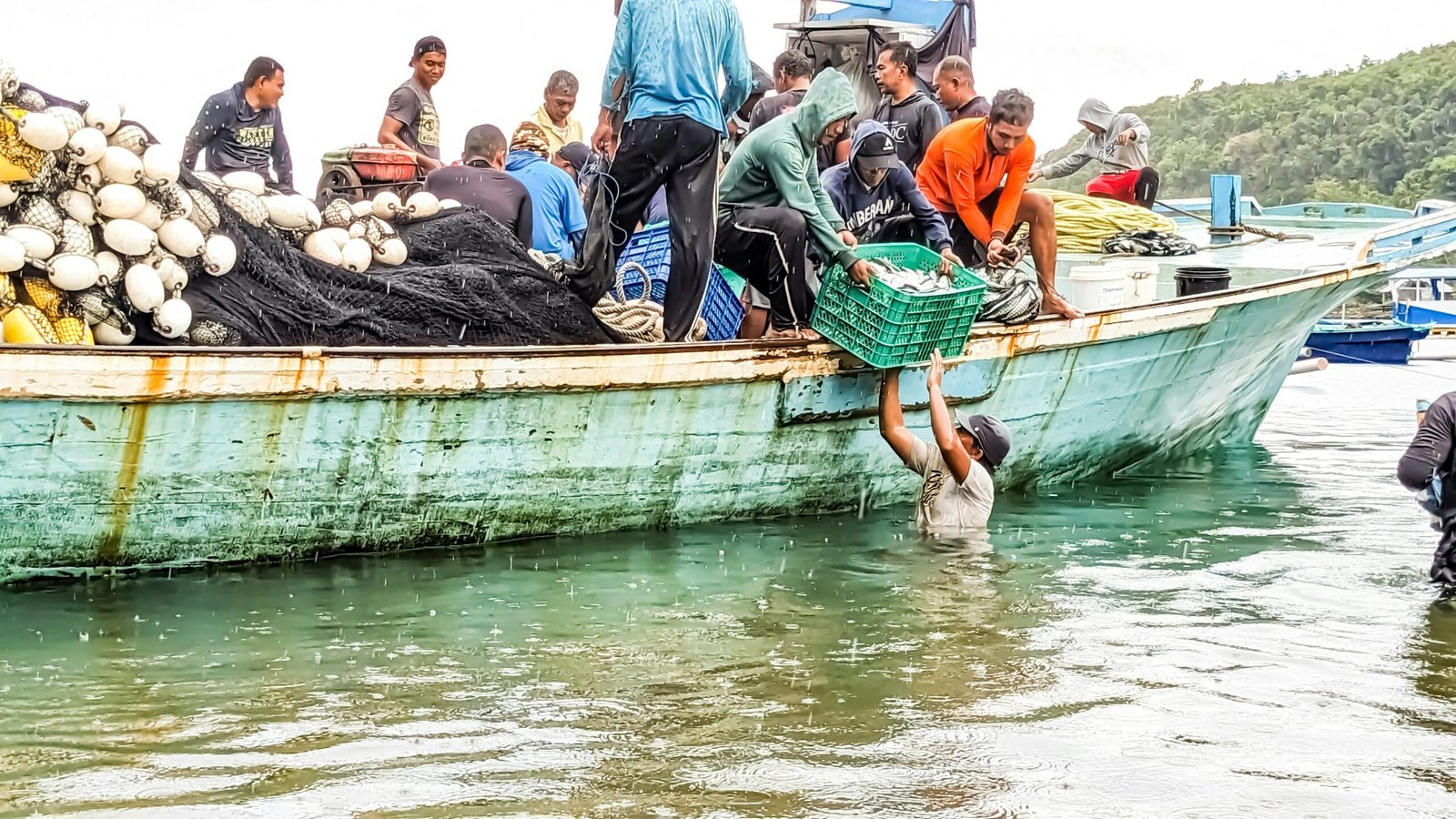Introduction to Kofi’s Story
Kofi is a dedicated farmer residing in a rural village in Ghana, where agriculture serves as the backbone of the local economy and the primary source of livelihood for many families. As a custodian of the land, Kofi has spent his entire life cultivating crops and sustaining his community through hard work and dedication. However, the growing impacts of climate change have emerged as formidable challenges that threaten not only Kofi’s agricultural practices but also the very essence of his community’s existence.
The changing climate has introduced numerous challenges that Kofi and his fellow farmers must confront on a daily basis. Erratic rainfall patterns, prolonged droughts, and unpredictable weather phenomena have disrupted the traditional farming calendar, making it increasingly difficult for farmers to plan and harvest their crops effectively. These climatic shifts not only jeopardize food security but also place immense pressure on the livelihoods of farmers who rely on consistent yields to feed their families and generate income.
In this landscape of uncertainty, Kofi’s resilience shines through. He actively seeks to adapt his farming techniques to mitigate the adverse effects of climate change. Employing sustainable farming practices, engaging in crop diversification, and utilizing water conservation methods are just a few of the strategies he has adopted to sustain his agricultural endeavors. Moreover, Kofi recognizes the importance of collaboration within his community. By working together with other farmers, they can share knowledge, resources, and innovative solutions to combat the challenges posed by climate change more effectively.
Addressing the difficulties faced by farmers like Kofi is crucial as they are on the front lines of climate change impacts. Their stories of resilience and innovation offer valuable insights into the broader battle against climate change. Kofi’s journey exemplifies how collective efforts and determination can pave the way for sustainable agricultural practices that not only protect the environment but also ensure the livelihoods of future generations.
Understanding Climate Change and Its Impact on Agriculture
Climate change represents a significant and escalating challenge for agricultural practices worldwide, particularly in vulnerable regions such as Ghana. Over the past few decades, shifts in temperature and rainfall patterns have dramatically influenced agricultural outcomes, leading to serious implications for farmers like Kofi. The increasing frequency and severity of environmental changes, including droughts and floods, are reshaping the agricultural landscape.
Droughts have become more common in Ghana, leading to extended periods of reduced rainfall that directly affect the soil moisture necessary for crop growth. This excessive dryness can severely diminish crop yields, threatening food security and farmers’ livelihoods. Farmers, including Kofi, often find it challenging to adapt to prolonged drought periods, resulting in lower productivity and potential financial instability.
Conversely, flooding presents another critical challenge. Heavy and unpredictable rainfall can lead to waterlogged soils, which impede plant growth and contribute to crop damage. The resulting lack of adequate drainage can wash away topsoil, further eroding the land’s fertility. This volatile weather pattern complicates Kofi’s farming practices, necessitating an urgent reevaluation of traditional methods to safeguard against these adverse effects.
The changing weather patterns also disrupt the seasonal cycles that farmers have relied upon for planting and harvesting. Inconsistent rainfall can lead to confusion regarding optimal planting times, increasing the risk of crop failure. As such, Kofi and his fellow farmers face the daunting task of adapting their strategies to cope with the unpredictable climate, necessitating innovative solutions that incorporate resilience into their agricultural practices.
In conclusion, the interplay of climate change phenomena, including droughts, floods, and erratic weather, profoundly affects agriculture in Ghana. The need for adaptive measures is paramount as farmers like Kofi confront these challenges to ensure sustainable agricultural productivity. Understanding these impacts is crucial for the future of farming and food security in the region.
Meeting Clara: An Environmental Advocate’s Vision
Clara, an environmental activist hailing from Germany, exemplifies the power of individual commitment to impactful change. With a background in environmental science, she has dedicated her life to advocating for sustainable practices and resilience in farming systems, particularly in developing countries. Clara’s journey began when she witnessed the dire effects of climate change on vulnerable communities during a university research project in East Africa. This experience ignited her passion for providing innovative solutions to help farmers adapt and thrive in the face of environmental challenges.
Understanding the critical role agriculture plays in the livelihood and culture of farmers, Clara became determined to collaborate with local communities. Her aim was to foster adaptive practices that would not only bolster food security but also empower farmers to confront climatic uncertainties. It was during a workshop focused on sustainable agriculture practices that Clara met Kofi, a local farmer deeply invested in this cause. Their connection was immediate, as Kofi shared his firsthand experiences of climate change’s impact on crop yields and local biodiversity.
Through discussions, Clara and Kofi recognized their shared vision: to promote sustainable farming techniques that are resilient to climate fluctuations. Clara brought with her the knowledge of innovative farming practices that have been successful in other regions, while Kofi offered insights into the unique challenges faced by farmers in Ghana. This collaboration bridged knowledge from different corners of the globe, creating an synergy that inspired both to expand their efforts.
As they worked closely together, Clara’s commitment to sustainability and Kofi’s grassroots connection to the agricultural community turned into a robust partnership. Their joint efforts represent not only a model of practical collaboration but also a testament to the intersection of local wisdom and global solutions in combating climate change, establishing a pathway toward resilience in farming practices across Ghana.
Implementing Sustainable Farming Practices
In the quest to combat the adverse effects of climate change, sustainable farming practices play a crucial role, and Clara introduces Kofi to several effective methods. One of the first techniques she advocates is crop rotation. This practice involves alternating the types of crops planted in a specific area across seasons. By doing so, the soil remains rich in nutrients, and the cycle disrupts the life cycles of pests and diseases, significantly reducing the need for chemical pesticides. Crop rotation not only enhances the yield but also promotes soil health by maintaining biodiversity.
Next, Clara emphasizes the importance of water conservation techniques. With fluctuating rainfall patterns, water management becomes essential in farming resilience. One method is the implementation of rainwater harvesting systems that collect and store rainwater for irrigation during dry spells. Additionally, drip irrigation systems are introduced, minimizing water wastage by delivering water directly to the plant roots. By conserving water, Kofi not only reduces costs but also contributes to the local ecosystem’s sustainability, ensuring that groundwater levels remain stable.
Another sustainable practice Clara teaches Kofi is organic farming. This method focuses on the use of naturally derived fertilizers and pest control, such as compost and neem oil, as opposed to synthetic chemicals. Organic farming not only helps in producing healthier crops but also enriches the biodiversity within the soil. Practices such as intercropping—which involves planting different types of crops in proximity—further enhance this approach by maximizing land use and preventing soil erosion. These sustainable methods ultimately lead to increased resilience against climate impacts, ensuring that Kofi can maintain a viable farming operation while contributing positively to the environment.
Kofi’s Adaptation Journey
Kofi’s journey towards adapting to climate change in Ghana has been marked by a steep learning curve, challenging setbacks, and noteworthy successes. When Kofi first encountered innovative farming techniques aimed at improving resilience to the shifting climate, he was initially overwhelmed. The prospect of incorporating unfamiliar methods such as agroforestry, intercropping, and the use of drought-resistant crops into his existing practices felt daunting. Nevertheless, Kofi understood that for the sake of his family and community, he needed to embrace these adaptations.
Determined to evolve as a farmer, Kofi began attending workshops and training sessions conducted by local agricultural organizations. This educational outreach played a crucial role in his adaptation journey. Through hands-on training, he learned not only the methods themselves but also the scientific principles behind them. As he experimented with these new techniques on his farm, Kofi began to see the fruits of his labor. His yields improved, and he discovered that diversifying his crops not only increased productivity but also reduced his vulnerability to climate-related shocks.
However, the road to adaptation was not without obstacles. Kofi faced environmental challenges such as unpredictable rainfall and pest infestations, which at times threatened to undermine his progress. Each setback tested his resilience and resolve. Kofi leaned on the support of his community, engaging in discussions with fellow farmers who were also navigating the complexities of climate change. This collaboration proved invaluable, as sharing experiences and solutions fostered a sense of collective resilience among the farmers.
As time went on, Kofi cultivated not just crops but a resilient mindset that enabled him to tackle challenges head-on. By embracing adaptation and resilience, Kofi emerged not only as a better farmer but also as a source of inspiration for others in his community grappling with similar climate-induced challenges. His story exemplifies how resilience is vital in the pursuit of sustainable agricultural practices amidst the ongoing threat of climate change.
Building a Supportive Community
Kofi’s journey in combating climate change in Ghana exemplifies the profound impact of community in addressing environmental challenges. His relationship with Clara, a fellow farmer, serves as the catalyst for establishing a network of farmers who are committed to mutual support and collaboration. This community not only acts as a source of inspiration but also becomes a vital platform for sharing knowledge and resources, essential for overcoming the adversities posed by climate change.
The significance of this supportive network cannot be overstated. Initially, Kofi and Clara began meeting to discuss their individual challenges related to climate change, including unpredictable weather patterns and dwindling crop yields. Recognizing that many farmers shared similar struggles, they decided to extend their dialogue, inviting other local farmers to join in. This led to the formation of regular meetings where farmers could share their experiences, innovative practices, and environmentally friendly strategies. Through these gatherings, valuable information on sustainable agricultural techniques was disseminated, enabling farmers to adapt and enhance their resilience.
Furthermore, this community allows for resource pooling, where farmers can share tools, seeds, and labor. In times of crisis, such as during periods of drought or pest infestation, the network acts as a safety net. The farmers support one another emotionally and materially, reducing the feeling of isolation that often accompanies agricultural setbacks. The collective spirit fostered among the group reinforces their resolve to fight against the detrimental effects of climate change.
In essence, the bond formed between Kofi, Clara, and the community symbolizes a shift towards unity in the face of adversity. Their shared commitment to collaboration serves as a model for others, showcasing that together, individuals can enhance their adaptability and resilience in combating the effects of climate change in Ghana.
The Role of Technology in Agriculture
In the fight against climate change, technology has emerged as a vital ally for agricultural practices, particularly in regions like Ghana where farmers like Kofi are seeking sustainable solutions. The infusion of technological advancements into farming can transform traditional methods into more efficient, eco-friendly practices, ultimately contributing to greater resilience against climate variability.
One of the significant technological innovations is the development of mobile applications that provide farmers with essential weather tracking information. These apps allow Kofi and his peers to receive real-time data on weather patterns, enabling them to make informed decisions regarding planting and harvesting times. By optimizing these timings, farmers can reduce crop losses attributed to unexpected weather changes, thus enhancing food security in their communities.
Moreover, online platforms have become instrumental for knowledge exchange among farmers. These platforms facilitate the sharing of best practices, innovative farming techniques, and lessons learned from various environmental challenges. Kofi, for instance, actively participates in forums where he can interact with other farmers and agricultural experts, gaining insights that help him to adapt his farming practices sustainably and efficiently.
In addition to mobile apps and online platforms, other technological tools, such as drones and precision agriculture equipment, aid in monitoring crop health and optimizing resource use. These innovations allow for targeted interventions, reducing waste and minimizing environmental impact. By integrating such tools into their farming systems, farmers can enhance productivity while adhering to sustainable practices.
Ultimately, technology serves as a powerful catalyst for improving the agricultural landscape in Ghana. Through Kofi’s collaboration with fellow farmers and adoption of these advancements, the community moves closer to achieving sustainable agricultural practices that are necessary in the face of climate change.
Lessons Learned: Resilience and Collaboration
Throughout his journey in combating climate change in Ghana, Kofi has acquired invaluable lessons centered around resilience and collaboration, which are pivotal for both farmers and communities facing similar challenges. One of the foremost realizations Kofi made is the significance of adaptability. As climate conditions continue to shift, farmers must be prepared to adjust their practices and strategies in response to these changes. By experimenting with different crops and embracing new agricultural techniques, Kofi exemplifies how resilience can lead to sustainable farming practices that are well-suited to varying environmental conditions.
Another critical lesson is the power of collaboration. Kofi has seen firsthand how working alongside fellow farmers and local organizations can enhance efforts in combating climate change. Forming cooperative groups allows farmers to share resources, skills, and knowledge, fostering an environment of mutual support. This collective approach not only amplifies individual farmers’ capacities but also strengthens community bonds. Kofi advocates for the importance of building networks, as these collaborations can lead to more effective advocacy for policies that benefit rural communities affected by climate change.
Moreover, Kofi understands that education plays a vital role in resilience. By sharing his experiences and insights with younger generations, he is instilling a sense of responsibility and awareness regarding climate change. This educational outreach empowers future farmers with the knowledge needed to adapt and innovate, ensuring that communities remain resilient in the face of ongoing environmental challenges.
Overall, Kofi’s journey embodies the idea that resilience and collaboration are not merely concepts; they are essential practices that can inspire agricultural transformation. These lessons have the potential to resonate across various contexts, encouraging individuals and groups to come together in the pursuit of sustainable solutions against climate change.
Conclusion: A Path Forward
Kofi’s journey, alongside Clara’s unwavering support, highlights the vital intersection of resilience and collaboration in the fight against climate change in Ghana. Their proactive approach to sustainable agricultural practices not only transformed their community but also serves as a powerful reminder of the potential for change through collective action. As they navigated the challenges posed by changing weather patterns and resource scarcity, they demonstrated that innovative solutions and shared knowledge can lead to successful outcomes in the face of adversity.
Continued support for individuals like Kofi and Clara is essential, not merely within the local context of Ghana but as a broader initiative that echoes across the globe. Farmers worldwide are experiencing the irrefutable impacts of climate change, often exacerbated by economic, social, and environmental challenges. The necessity for advocacy in sustainable practices remains paramount, ensuring that all farmers are equipped with the tools and knowledge required to thrive in an unpredictable climate.
The journey undertaken by Kofi and Clara underscores the importance of cultivating partnerships among farmers, governmental bodies, NGOs, and researchers. This collaborative spirit can stimulate the development of effective strategies that are essential in combating climate change. Knowledge sharing and resource pooling are crucial in establishing resilient agricultural systems that not only bolster food security but also protect livelihoods. As Kofi and Clara exemplified, every little action contributes to a much larger impact.
Moving forward, it is imperative to recognize the interconnectedness of local actions and global outcomes in combating climate change. By supporting initiatives like those led by Kofi and Clara, we can promote a sustainable agricultural future, enhancing resilience for farmers not just in Ghana, but worldwide. Collective efforts will undoubtedly pave the way for innovative solutions, reinforcing the importance of collaboration and resilience in our shared battle against climate change.



